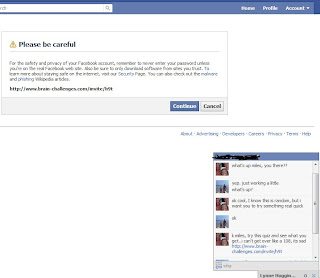Attacks on the Mac are important enough to warrant Apple users invest in an antivirus product, security company Panda Security, said when launching a new product that offers such protection.
Marketing of crop selection for economy Apple or caution justified? Panda points to the numbers. Currently there are 5,000 "strains" of malware that target the Mac and the company says it is seeing 500 new Mac-specific samples that appear every month.
In 2009, 34 vulnerabilities were identified in OS X from Apple, which had risen to 175 so far for 2010, with a total of 170,000 20-year macro "viruses" that affect the platform.
To be clear, these security threats refer only to desktops and laptops and not Apple iPhones or iPads unless they have been "jailbreaked" (personally hacked) or if, somehow, an application breaks offenders through the approval process.
Security firms working with Apple users is nothing new and every antivirus company now has a significant Mac products, driven in part by the user base growing a little larger in the U.S.
Many of the software vulnerabilities were cross-platform browser flaws, and is not specific to the Mac. As for the 170,000 macro viruses , while in a general sense, the malware threat is so obsolete on the PC that vendors don't even bother to count them.
The argument rests on the number of new malware threats now being seen and their complexity. So far, the evidence suggests that while the odd Trojan is now appearing, Mac malware is still a low-key threat.
"We have always held the theory that when Apple reaches a more significant market share, around 15 percent worldwide (which given its current rapid growth will be achieved shortly), hackers will begin to target attacks against this platform," claimed Panda vice president, Ivan Fermon.
"We would even say that today, the Windows operating system is more secure than Mac, simply because Microsoft has been working proactively on security for many years," he added.
Given the small but plausible nature of the threat, there is an argument that Apple itself should offer a security program as part of its offering, instead of leaving it up to third parties. It's what Microsoft ended up doing, retro-fitting a firewall to XP and more recently giving away a free antivirus program, Security Essentials.
Ironically, the reason Microsoft avoided doing such a thing in the first place was worry over antitrust probes which would have viewed such a move as anticompetitive. This free-market idea woefully misunderstood the nature of the threat and the world is still cleaning up the mess today.
For the record, both AVG and Panda antivirus for Mac offers realtime protection, file scanning and the ability to probe iPhones and iPads to ensure they are not harboring malware even if that malware can't hurt those devices.
Panda also points out that antivirus products on Macs stop Windows malware being passed on (as attachments) to PC users although it seems unlikely many people will want to buy protection for other users who probably have their own security anway.
Mac users interested in an AVG Security bundle for Mac can buy a one-year unlimited support plan with pricing based on residential or customer needs. This is a tad higher than a Windows user would pay for equivalent protection but that is the case with all Mac software. Development costs are higher for a smaller number of users.



